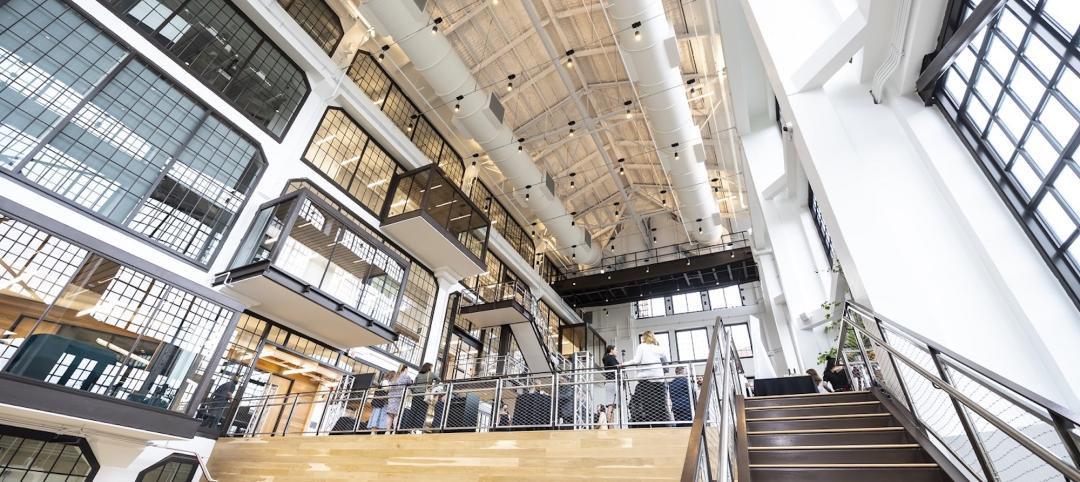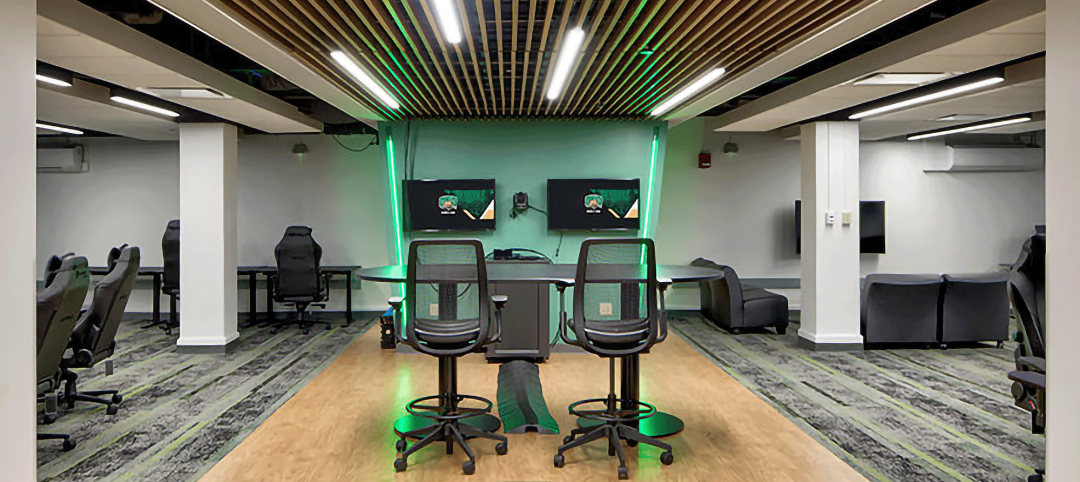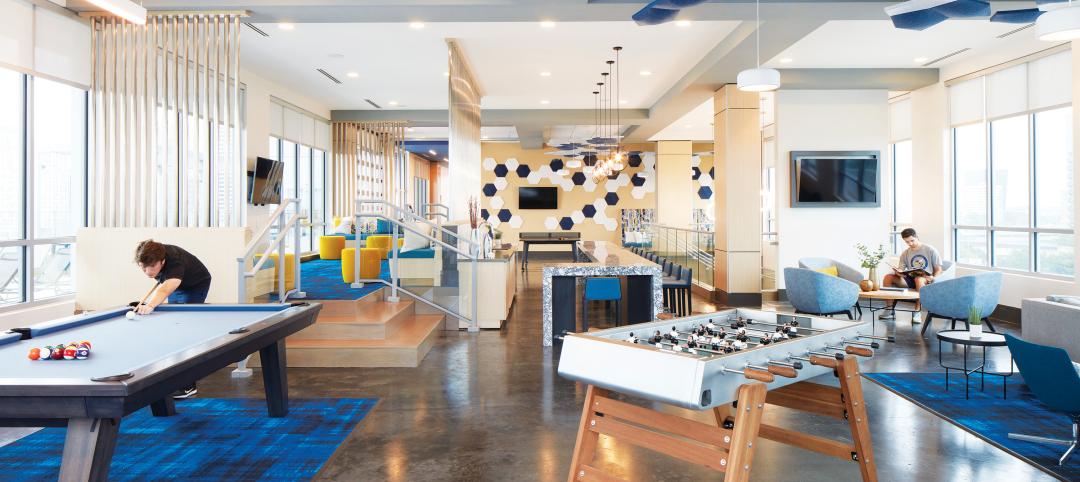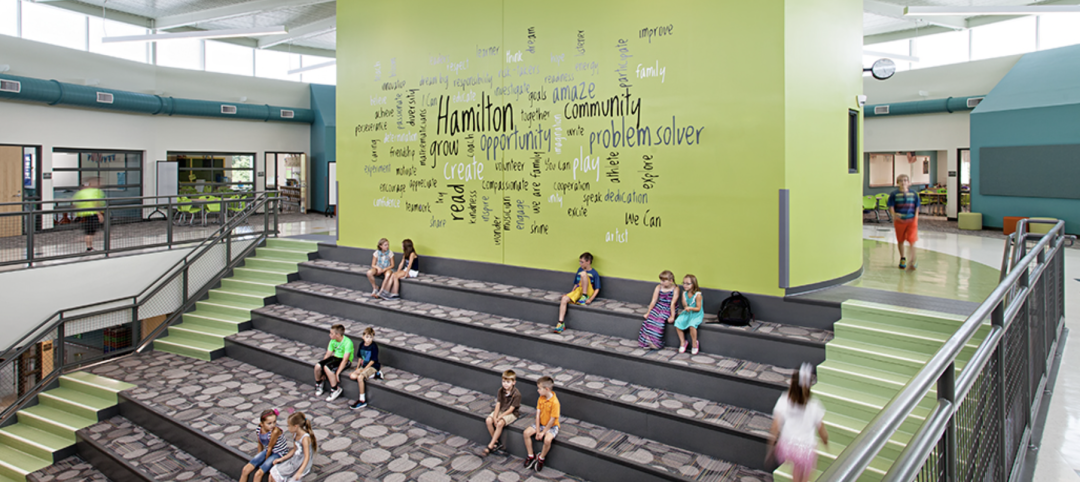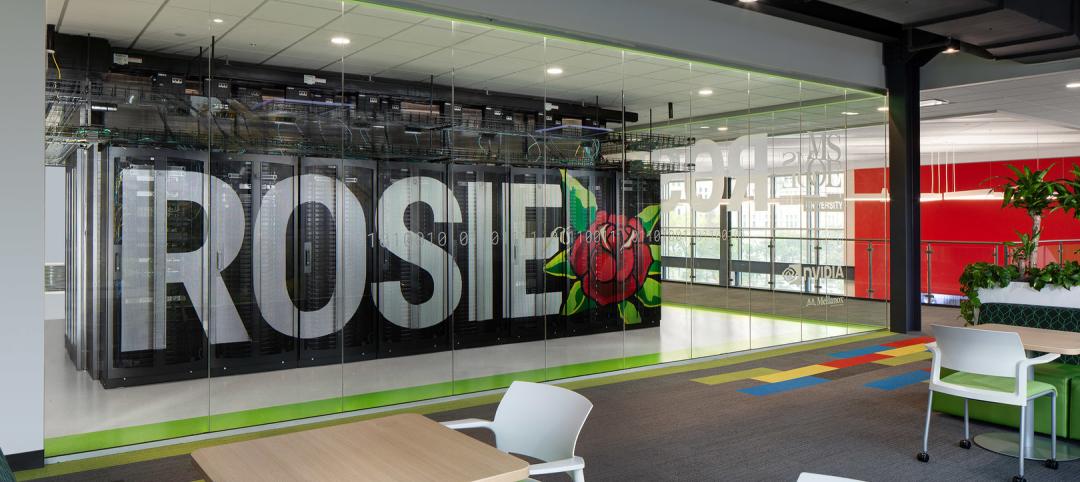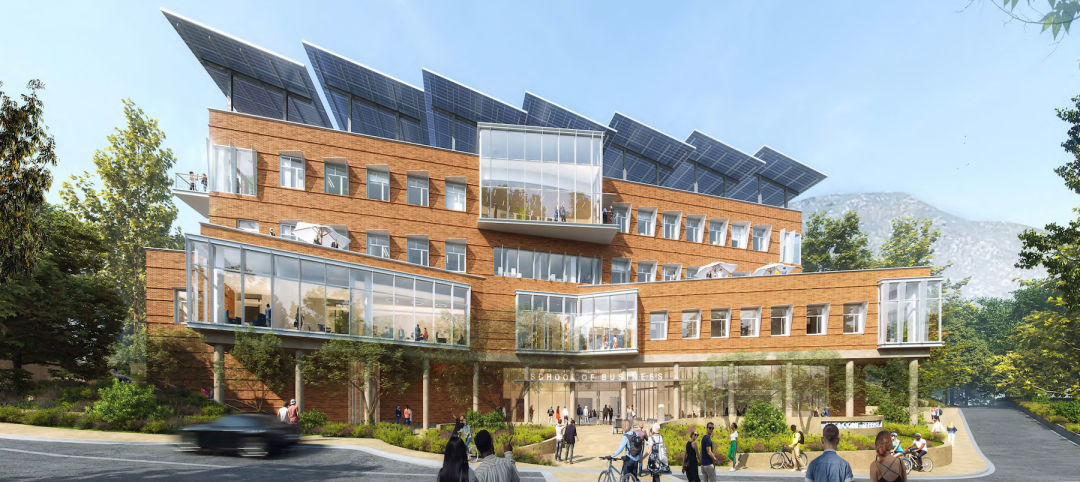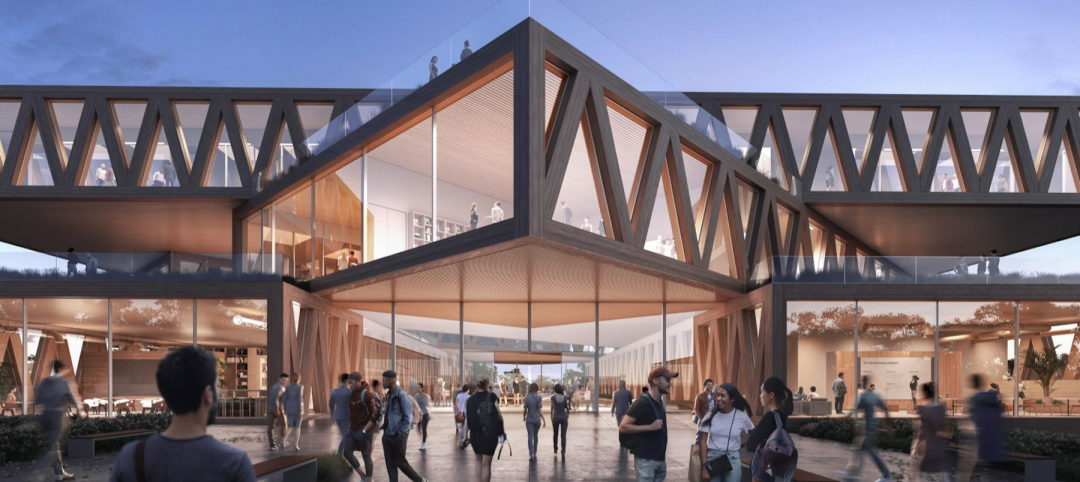UC Merced recently completed the third phase of its 2020 Project, which the university asserts is the largest public-private partnership social infrastructure project in U.S. history.
The $1.2 billion project on 219 acres in California’s San Joaquin Valley initially started construction in October 2016. It adds 11 buildings and 1.2 million gross sf to the campus, including wet and computational labs, student housing, 1,570 parking spaces, a conference center, a greenhouse, and recreational fields. Two more buildings are planned for future phases.
This is the only higher education campus in the nation where all buildings are LEED certified. The 2020 Project buildings are certified LEED Platinum. The 2020 Project is designed to achieve "Triple Zero" sustainability—zero net energy, zero landfill waste, and zero net greenhouse gas emissions. It’s the first public research university in the U.S. to achieve carbon neutrality.
The 2020 Project supports enrollment of 10,000 students. The project gave UC Merced the opportunity to address its current and future space needs. Students and faculty were invited during the design phase to help develop a process for managing the use of UC Merced’s physical facilities to further its teaching, research, and public service mission.
MULTIPLE ARCHITECTS INVOLVED
Skidmore, Owings & Merrill, which created UC Merced’s original master plan in 2002 and eight other campus buildings, master-planned the 2020 Project, a design-build effort with lead contractor Webcor Construction and the developer and equity member Plenary Group (Canada).
“This on-time, on-budget completion of the 2020 Project shows that incredible things can happen when all stakeholders work together with a true spirit of partnership,” said Dale Bonner, executive chairman of Plenary.
SOM was the design architect on the 2020 Project’s research labs, dining hall, loading dock, and greenhouse. Page Southerland Page and Mahlum Architects designed the student housing. HOK designed the student life facility, Early Childhood Education Center, Wellness Center, and competition swimming pool. The academic classroom and student enrollment center architect was WRNS Studio. Arup North America provided infrastructure and engineering services, and Johnson Controls was the lead for operations and maintenance. Atelier Ten provided the LEED certification service and was in charge of Sustainability and energy modeling for the 11 new buildings.
The project delivery team included UC Merced’s Physical Operations, Planning, and Development department, WT Partnership (project and contract management), AECOM (engineering advisor), Woods Bagot (design advisor for lab and academic space), and Crawford Architects (design advisor for student life and housing).
A VARIETY OF NEW BUILDINGS
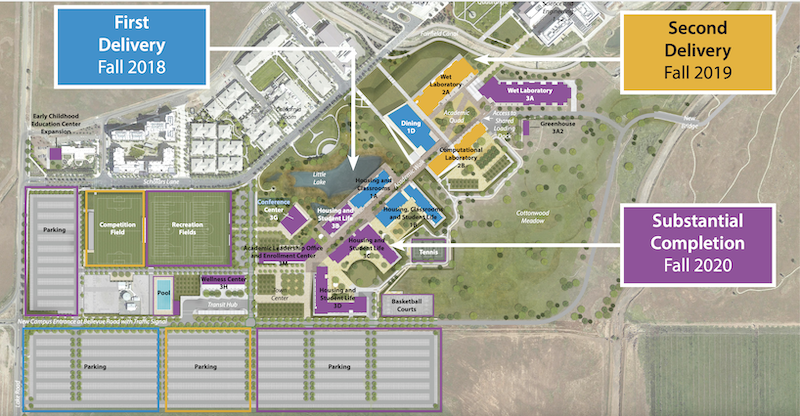
UC Merced completed its 2020 Project in three phases. It was essentially finished last fall.
The 2020 Project’s academic program includes 373,400 assignable sf of research space, instructional space, and academic office space. The amounts and types of space are tied to the anticipated distribution of faculty members among disciplines, classroom utilization, and a modular approach to office-space needs.
Integrated throughout the campus, the Student Life program includes health and psychological counseling facilities, early childhood education, enrollment, dining, and recreational facilities that support, attract, and retain students. The 2020 Project encourages innovations that facilitate shared student‐life spaces and one‐stop, student‐centered services. It totals 115,500 assignable sf plus 420,570 gross sf of outdoor space, including athletic fields.
The student housing program is designed to address existing and future demand for on-campus housing. It includes 289,600 assignable sf and adds more than 1,700 beds to the campus inventory.
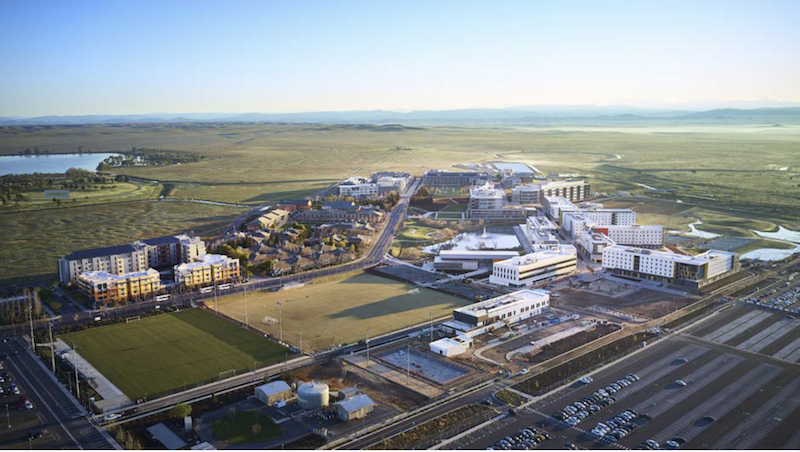
The campus has more room to grow, as needed.
Beyond the 2020 Project delivery, several master plan-only facilities have been sited, including an arena, welcome center, conference center, and expansion to the Academic Leadership Office, among others. A 2,500-sf Research Greenhouse is strategically located so it can be expanded as funding becomes available in the coming years. The greenhouse currently provides for a variety of research opportunities, including food and water security, biodiversity, climate change, renewable energy, and ecosystems—all of which supports UCM’s mission to prioritize sustainability.
Related Stories
Adaptive Reuse | Dec 21, 2022
University of Pittsburgh reinvents century-old Model-T building as a life sciences research facility
After opening earlier this year, The Assembly recently achieved LEED Gold certification, aligning with the school’s and community’s larger sustainability efforts.
Esports Arenas | Dec 19, 2022
Ohio University’s OHIO Esports Arena redefines video gaming
If a college student enjoys film studies, there is probably a place on campus where they can join other film buffs. But where can students who like video games go?
Sponsored | Resiliency | Dec 14, 2022
Flood protection: What building owners need to know to protect their properties
This course from Walter P Moore examines numerous flood protection approaches and building owner needs before delving into the flood protection process. Determining the flood resilience of a property can provide a good understanding of risk associated costs.
Student Housing | Dec 7, 2022
9 exemplary student housing projects in 2022
Production continued apace this year and last, as colleges and universities, for-profit developers, and their AEC teams scrambled to get college residences open before the start of classes.
University Buildings | Dec 5, 2022
Florida Polytechnic University unveils its Applied Research Center, furthering its mission to provide STEM education
In Lakeland, Fla., located between Orlando and Tampa, Florida Polytechnic University unveiled its new Applied Research Center (ARC). Designed by HOK and built by Skanska, the 90,000-sf academic building houses research and teaching laboratories, student design spaces, conference rooms, and faculty offices—furthering the school’s science, technology, engineering, and mathematics (STEM) mission.
Education Facilities | Nov 30, 2022
10 ways to achieve therapeutic learning environments
Today’s school should be much more than a place to learn—it should be a nurturing setting that celebrates achievements and responds to the challenges of many different users.
Data Centers | Nov 28, 2022
Data centers are a hot market—don't waste the heat!
SmithGroup's Brian Rener shares a few ways to integrate data centers in mixed-use sites, utilizing waste heat to optimize the energy demands of the buildings.
University Buildings | Nov 13, 2022
University of Washington opens mass timber business school building
Founders Hall at the University of Washington Foster School of Business, the first mass timber building at Seattle campus of Univ. of Washington, was recently completed. The 84,800-sf building creates a new hub for community, entrepreneurship, and innovation, according the project’s design architect LMN Architects.
University Buildings | Nov 2, 2022
New Univ. of Calif. Riverside business school building will support hybrid learning
A design-build partnership of Moore Ruble Yudell and McCarthy Building Companies will collaborate on a new business school building at the University of California at Riverside.
School Construction | Oct 31, 2022
Claremont McKenna College science center will foster integrated disciplinary research
The design of the Robert Day Sciences Center at Claremont McKenna College will support “a powerful, multi-disciplinary, computational approach to the grand socio-scientific challenges and opportunities of our time—gene, brain, and climate,” says Hiram E. Chodosh, college president.



